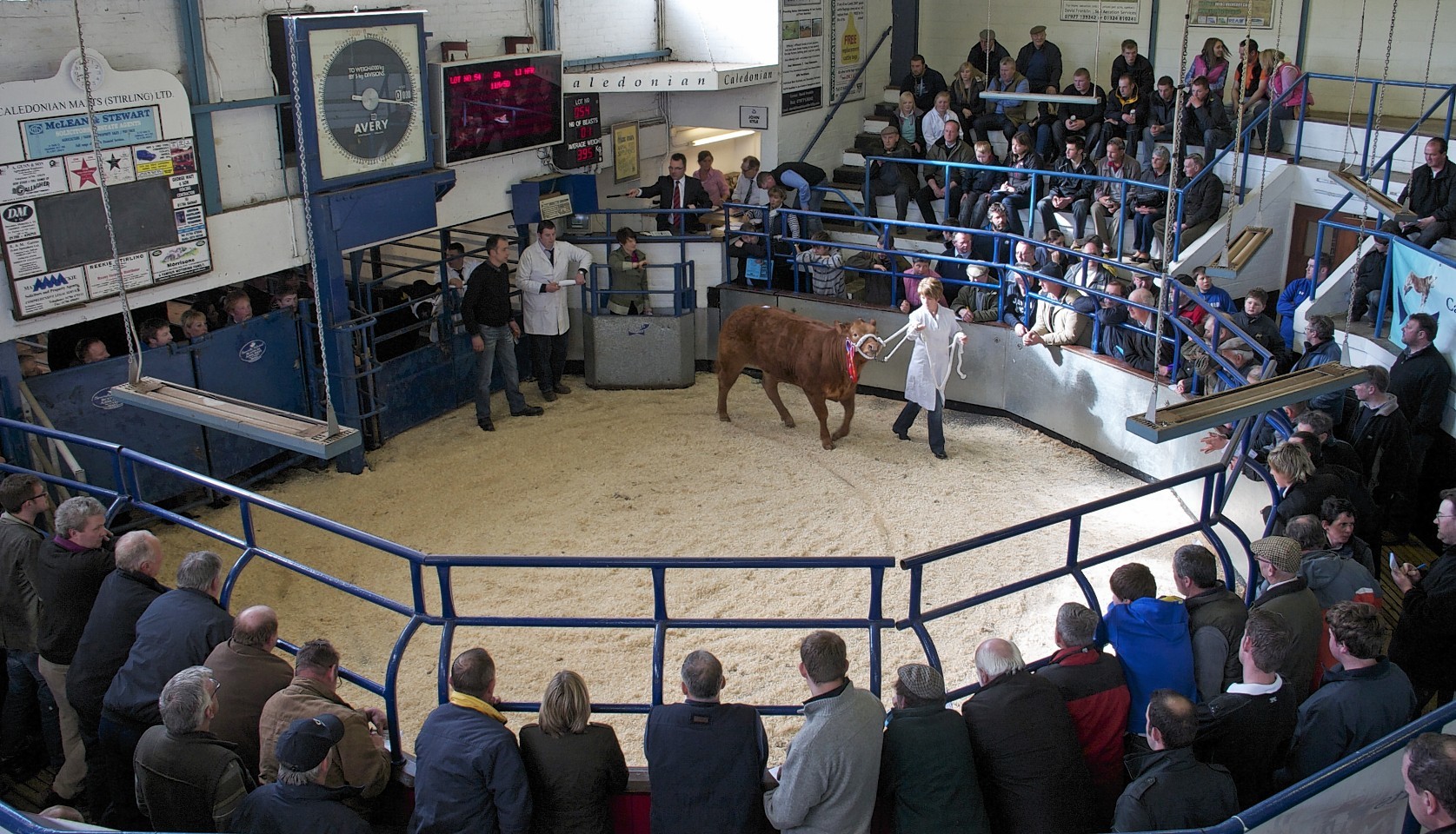The directors of Stirling-based Caledonian Marts have called a special general meeting for Friday with the outcome likely to prove critical to the survival of the business as a farmer-owned co-operative.
In a letter to the 3,000 member shareholders of the business, board chairman James Cullens has left them in no doubt of the need to re-capitalise if “the Caley” is to be able to act independently as an important auction market for central Scotland.
The problem is a build-up of debtors with livestock purchasers due £5.96million, according to soon-to-be-released accounts for the year to May 31, 2014.
With net assets appearing as £4.14million, this is clearly an unsustainable position although auction markets by their very nature will always have a large amount of money outstanding. This is especially so at present values with a one-day sale of 1,000 store cattle commonly seeing a throughput of more than £1million.
The immediate issue for Caledonian Marts however is £3.75million of debt which Mr Cullens describes in his letter as being “deemed irrecoverable” and which will accordingly be written off in the end-of-May 2014 accounts. Consequently he has warned that these accounts will show a large loss.
“The board recognises that management reporting, financial control systems and credit control processes have been lacking historically and as a result the large irrecoverable debt balance has been allowed to build. This has led to an unsustainable level of bank debt,” stated Mr Cullens.
The current borrowings with Royal Bank of Scotland are stated as being around £3million with additional funding of £800,000 from members’ loans.
Mr Cullens said: “That is the situation and our priority is to resolve it and remain an independent business. There is a strong underlying support for the market and people have been supportive.
“The meeting on January 9 will allow the board to gauge the level of support but it is also needed to get members’ approval to change the society’s rules which date back to 1962 and are no longer fit for purpose.
“It is very much business as usual at the market and I believe this should be looked on as an opportunity to regalvanise the operation. We are being well-guided by professional advisers.”
Since the death of long-serving general manager John Broadfoot in July there have been management changes including the appointment of a new internal accountant.
Robust credit control provisions are currently being implemented including a limit of £100,000 of credit to any one debtor.
In his letter Mr Cullens points out two possible options for the future. The first would see existing members contributing additional capital in the form of a new class of Member Investment Shares. If the uptake was sufficient to reduce borrowings and provide sufficient working capital the business would be able to function very much in its present form.
The alternative option would be to sell the business, including its main asset, the market building at Millhall, on the industrial outskirts of Stirling. There is a possibility that any purchaser would be happy to rent the premises back to a reconstituted Caledonian Marts and for business to continue. Although Mr Cullens does not mention this, such a sale might of course result in a rival auction company buying the business or indeed the premises being bought for a purpose other than livestock auctioneering.
Mr Cullens said he was quite certain that the farming community valued the presence of the market at Millhall.
He said: “Livestock markets work on a small margin and they offer a vital role in price-setting. You only have to look at the position in Ireland, where there are no markets, to see the pressure a small number of processors can exert on prices.
“We saw the same effect here in the UK during the 2001 foot-and-mouth outbreak when markets were closed. I really hope we can resolve the present situation satisfactorily and retain our independence.”
The rule changes which the nine-strong Caledonian Marts Ltd board seek approval for would allow greater flexibility to attract new members, an increase on the maximum level which can be subscribed by members and the granting of powers to the board to sell the business if that proves to be the best option.
